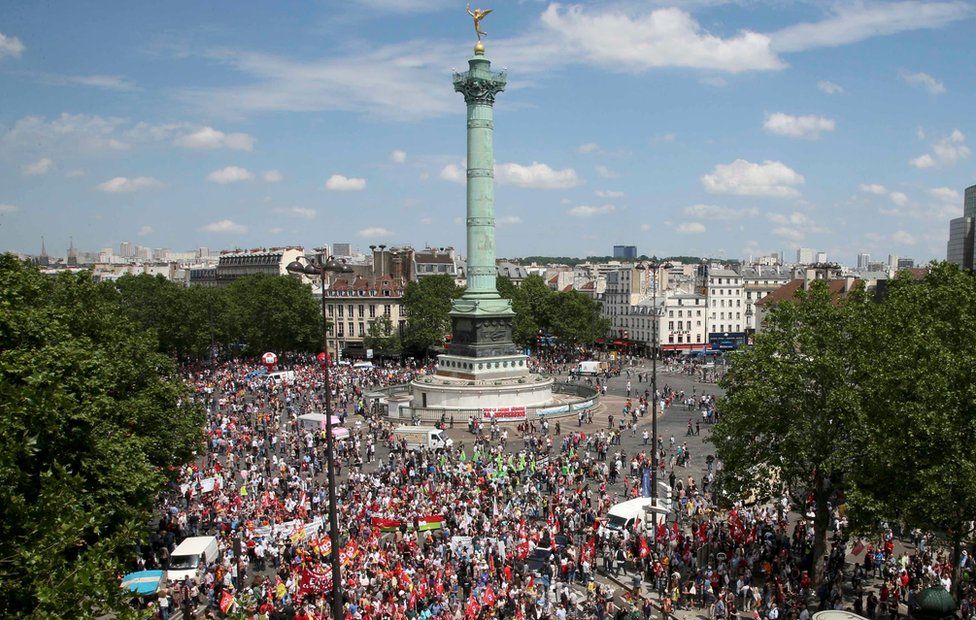France labour law: Thousands protest in Paris
- Published

Tens of thousands of people have taken part in a protest in Paris against France's labour reforms.
About 2,000 riot police were deployed to prevent a repeat of the violent clashes during the last demonstration on 14 June.
Some 100 people were arrested before Thursday's march set off from the Place de la Bastille.
Most of those held were wearing scarves or other items which could be used to conceal their identities, police said.
Interior Minister Bernard Cazeneuve said the march was held under "optimal conditions" with no clashes or damage reported.
"No teargas was fired... no-one was injured," he said.
The march was initially banned but ministers reversed their decision after a public uproar.
The protesters object to government reforms that make it easier for employers to hire and fire workers and relax the limit on working hours.
French President Francois Hollande has said the government will not retreat from the reform.
"We will take this bill to the finish line," he told reporters.
Protests were also being held in other French cities.
In the western city of Rennes, protesters torched a car, attacked police headquarters and smashed store fronts, French news agency AFP reported.
French labour reform bill - key points:
- The 35-hour week remains in place, but as an average. Firms can negotiate with local trade unions on more or fewer hours from week to week, up to a maximum of 46 hours
- Firms are given greater freedom to reduce pay
- The law eases conditions for laying off workers, which is strongly regulated in France. It is hoped companies will take on more people if they know they can shed jobs in case of a downturn
- Employers to get more leeway to negotiate holidays and special leave, such as maternity or for getting married. These are currently also heavily regulated
- Published22 June 2016
- Published26 May 2016